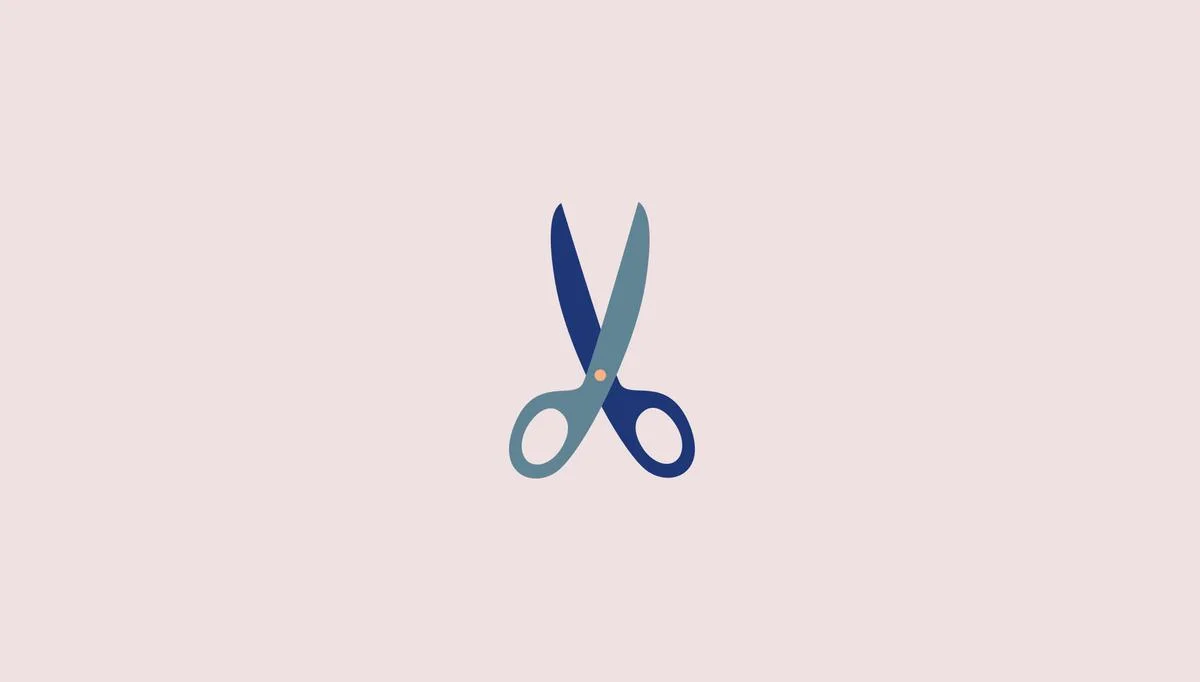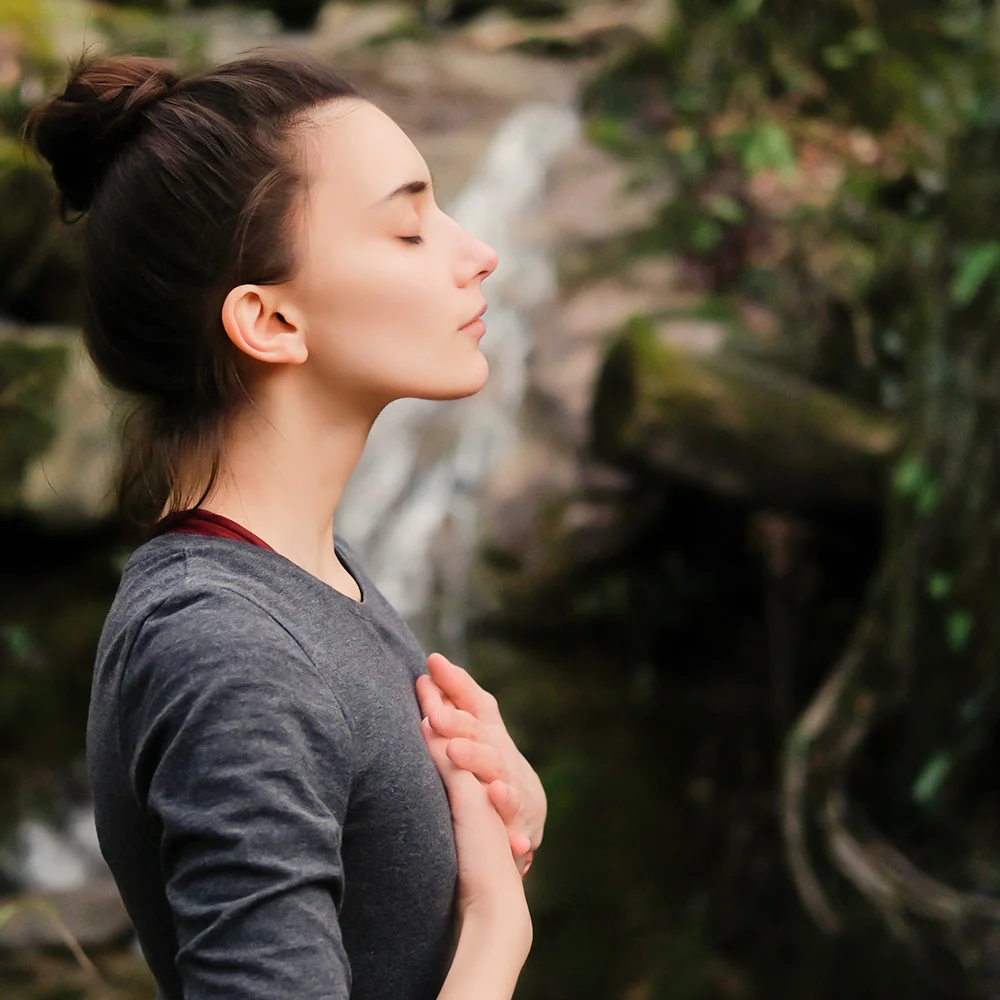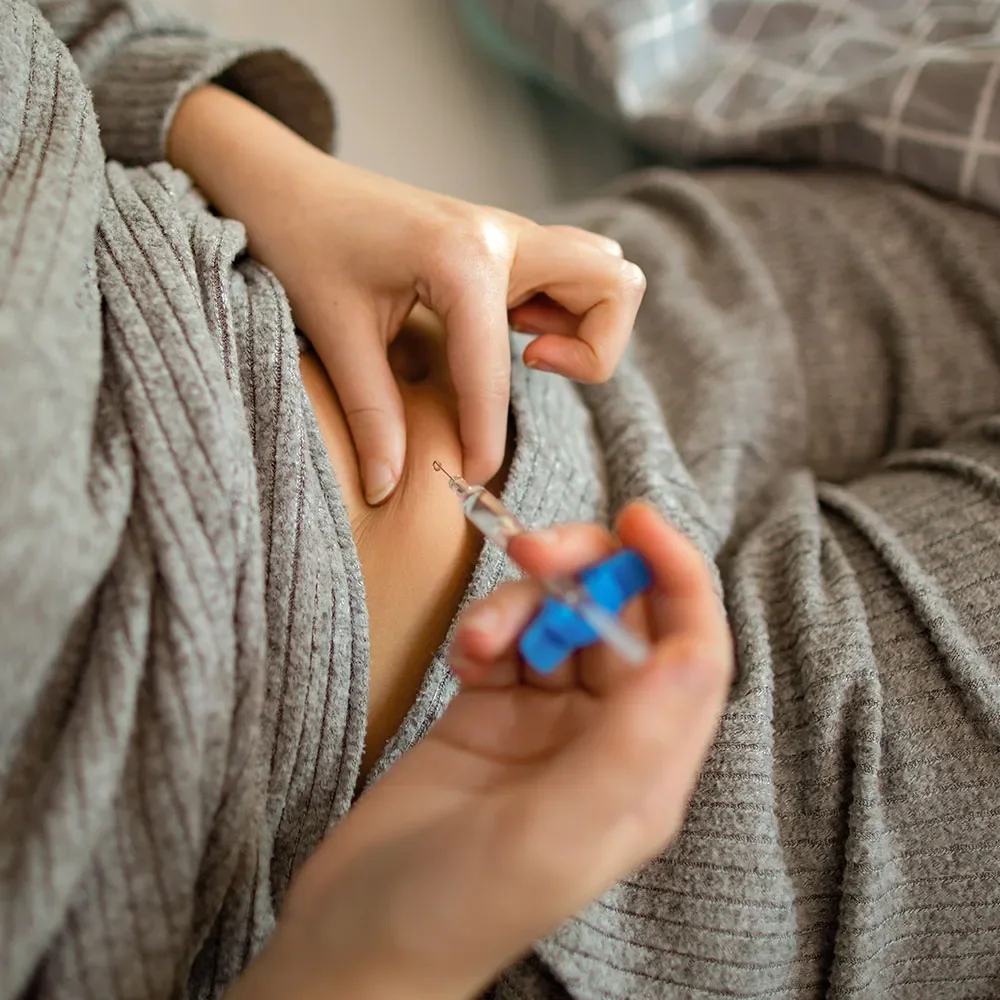Here's what we'll cover
Here's what we'll cover
Here's what we'll cover
Urinary tract infections, or UTIs, are one of the most common bacterial infections in the world. In the United States, UTIs account for an estimated 10.5 million visits to healthcare providers, who usually treat the infections with antibiotics (Flores-Mireles, 2015).
What is a UTI?
Before we talk about the antibiotics that treat UTIs, let’s discuss what the medications are targeting.
Urinary tract infections, or UTIs, refer to a group of infections that can happen anywhere along the urinary tract, which includes the kidneys, ureters, bladders, and urethra. Antibiotics are used to treat UTIs because bacteria often cause them—Escherichia coli (E. coli) is the type of bacteria notoriously famous for causing most UTIs.
Most germs that cause these infections typically live on the skin in unharmful numbers, especially in areas like the vaginal folds. However, once in the urinary tract, they can multiply to unsafe colony numbers and cause symptoms (Flores-Mireles, 2015).
UTI symptoms include: burning during urination, needing to pee frequently, lower abdominal pain or cramping, blood in your urine, and feeling the need to urinate even if you just went to the bathroom.
How does an antibiotic work on a UTI?
Antibiotics are the preferred method of treatment for UTIs because they work well against the bacteria commonly suspected of causing UTIs. They’re used to control and reduce the pathogen colonies in the urinary tract by concentrating in the urine.
What are some types of antibiotics used to treat a UTI?
There are many types of antibiotics that your healthcare provider might prescribe. These antibiotics are organized into classes based on how they affect the infection-causing germs—all of the following are good treatment options (Jancel 2002):
Trimethoprim-sulfamethoxazole
Trimethoprim-sulfamethoxazole has been considered the standard of care for acute and recurrent UTIs in the past. It’s affordable, effective against the most common UTI-causing pathogens; it is also relatively well-tolerated (meaning it usually doesn’t cause severe side effects). This antibiotic combines two medications (trimethoprim and sulfamethoxazole) to disrupt bacterial DNA synthesis. The most common side effects include skin rash, nausea, and vomiting.
Unfortunately, antibiotic resistance to this medication is rising—your healthcare provider may or may not use this drug depending on the rates of antibiotic resistance in your area (Gupta, 2017). Avoid using it during pregnancy as it is FDA pregnancy category C (Gupta, 2017). Some brand name examples of this medication are Bactrim and Sulfatrim.
Nitrofurantoin
Nitrofurantoin comes in two forms: macrocrystalline formulation (brand name Macrodantin) and monohydrate-macrocrystal form (brand name Macrobid). This antibiotic affects bacterial metabolism and possibly cell wall synthesis. Macrodantin needs to be taken every 6 hours, while Macrobid only needs to be taken twice a day. Both are less effective in people with kidney problems than other antibiotic options. Common side effects of nitrofurantoin may include headaches, nausea, general discomfort, cough, and labored breathing.
Fosfomycin
Fosfomycin is used mainly for uncomplicated UTI treatment. This antibiotic inhibits a protein in bacteria called pyruvyl transferase. This protein helps make the bacterial cell wall, a structure that gives and keeps the bacteria shape. Fosfomycin is administered as a 3-gram oral single-dose (usually a powder) mixed with water. Fosfomycin causes minimal side effects—when they occur, they typically include diarrhea, headache, nausea, vomiting, and throat discomfort. The brand name for this medication is Monurol.
Other options
Beta-lactam antibiotics, like amoxicillin and cephalosporins (e.g., cephalexin), and fluoroquinolones (like ciprofloxacin and levofloxacin) are alternative antibiotics sometimes used to treat UTIs. However, these drug classes are not first-line therapy because either they are not as effective against UTIs, or they have high rates of drug resistance. These antibiotics are usually only used when urine cultures show that your infection is susceptible to these drugs or if you cannot tolerate other antibiotics (Gupta, 2017).
Why is it important to take my antibiotic as prescribed?
When prescribing an antibiotic, a healthcare provider takes many factors into account, such as allergy history, cost, tolerability, previous antibiotic therapy, and prevalence of drug resistance. Drug resistance is a public health problem. It refers to how germs can develop antibiotic resistance to our antibiotics through developing mutations that defend them and passing that genetic information on to other germs (CDC-b, 2020).
Antibiotic resistance makes our drugs less effective and affects people everywhere. If your healthcare provider prescribes an antibiotic treatment, you can do your part to help fight this problem. Follow your provider’s directions and remember the following guidelines (CDC-a, 2020).
Do not take antibiotics for someone else. Even if it looks convenient for both of you because you have the same infection, taking someone else’s antibiotics could delay the best treatment option for you, make you even sicker, or cause side effects.
Do not save them for later. You need to finish the prescribed course of antibiotics, even if you feel better, to ensure that the germs are entirely eradicated from your body.
Do not share your antibiotics with others. Your healthcare provider prescribed them specifically for you after carefully considering a variety of factors. Additionally, you don’t know you will experience adverse side effects from the antibiotics.
If you have any questions or concerns about the side effects of the antibiotic you are taking, seek medical advice from your healthcare provider rather than just stopping the drug.
What are the types of UTIs?
UTIs are categorized into two types.
Complicated UTIs refer to infections associated with another condition. Often, that underlying condition makes the UTI worse because it may involve pre-existing kidney or bladder problems. If left untreated, complicated UTIs can lead to severe, permanent kidney damage.
The other category of UTIs is an uncomplicated UTI. These occur in individuals who are otherwise healthy and do not have abnormalities in their urinary tract. Uncomplicated UTIs tend to be recurring. They are categorized based on where the infection develops along the urinary tract. If it develops in the bladder, it’s called cystitis; if it grows in the kidney, it’s called pyelonephritis (Flores-Mireles, 2015).
What are some risk factors for UTIs?
People with vaginas are 30 times more likely to develop a UTI than a penis. Anatomically speaking, the vagina has a shorter urethra connecting it to the bladder, and it’s closer to the rectum. These factors make it easier for the bacteria to colonize, starting an infection in the urinary tract (Sabih, 2020).
However, people with penises can develop a UTI; 3 in 25 men develop UTIs over their lifetime, according to the AUA (AUA, 2016). Other factors that make someone more prone to developing a complicated UTI include older age, being in the hospital (especially if you had a catheter), diabetes, kidney stones, pregnancy, and poor immune system health (Flores-Mireles, 2015).
Certain behaviors increase your risk of developing a UTI. Using certain forms of birth control, such as spermicides or diaphragms, can increase your chances of a UTI. Poor hygiene, such as wiping from back to front (anus to vaginal opening), or other methods of moving germ-troublemakers to the entrance of your urinary tract, can increase your risk for a UTI.
Lastly, sexual intercourse can expose your urinary tract to UTI-causing germs. Other risk factors include menopause, previous UTIs, and urinary tract obstructions like kidney stones or an enlarged prostate (CDC, 2019).
What happens if you leave your UTI untreated?
If left untreated, your UTI could get worse. With proper treatment prescribed by a healthcare provider, a bladder infection could go away in as little as three days. Infection progression time varies from person to person.
According to the National Institute of Diabetes and Digestive and Kidney Diseases (NIDDK), kidney infections are serious and can leave permanent scarring and damage that affects kidney function. The disease damages the renal cells, making it harder for your kidneys to filter efficiently. In even more severe cases, an infection could trigger an inflammatory response called sepsis that can cause multi-organ failure (NIDDK, 2017).
What does it mean if you have recurring UTIs?
Recurrent urinary tract infections are widespread. One study found that 44% of women who experience acute uncomplicated cystitis will have a recurrence later that year, usually within three months from the initial episode. Most providers define recurrent UTIs as two or more infections in six months or three episodes or more over a year (Gupta, 2013).
Recurrent UTIs usually do not indicate a failure of the first treatment, though the same strain of germs may have reinfected you. If your last infection happened recently, your healthcare provider might ask for a urine culture to see if the drug was active. A UTI is considered a relapse of the same infection if the recurrence happens within two weeks of a previous episode (Gupta, 2013).
How do you prevent or avoid UTIs?
While there are no scientifically proven home remedies to UTIs, there are some things you can do yourself to avoid getting a UTI:
Urinate when your body tells you it needs to. Urinating flushes germs from your urinary tract.
Drink plenty of water so your body can continuously clear your urinary tract. The American Urological Association suggests nearly half a gallon daily (AUA, 2019).
Pee after sexual activity to clear the urethra.
Wash the penis between anal and vaginal intercourse. Not doing so could transfer UTI-causing germs directly into the urinary tract (Lema, 2018).
DISCLAIMER
If you have any medical questions or concerns, please talk to your healthcare provider. The articles on Health Guide are underpinned by peer-reviewed research and information drawn from medical societies and governmental agencies. However, they are not a substitute for professional medical advice, diagnosis, or treatment.
References
American Urology Association (AUA) - Urology Care Foundation: Understanding UTIs Across the Lifespan. (2016). Retrieved on Aug. 1, 2020 from https://www.urologyhealth.org/healthy-living/urologyhealth-extra/magazine-archives/summer-2016/understanding-utis-across-the-lifespan
American Urology Association (AUA) - Urology Care Foundation: Urinary tract infections (2019). Retrieved Aug. 1, 2020 from https://www.urologyhealth.org/urology-a-z/u/urinary-tract-infections-in-adults
Centers for Disease Control and Prevention (CDC-a). (2020). Antibiotic Resistance Questions. Retrieved Aug. 1, 2020, from https://www.cdc.gov/antibiotic-use/community/about/antibiotic-resistance-faqs.html
Centers for Disease Control and Prevention (CDC-b). (2020). How Antibiotic Resistance Happens. Retrieved Aug. 1, 2020, from https://www.cdc.gov/drugresistance/about/how-resistance-happens.html
Centers for Disease Control and Prevention (CDC). (2019). Urinary tract infection. Retrieved Aug. 1, 2020 from https://www.cdc.gov/antibiotic-use/uti.html?CDC_AA_refVal=https%3A%2F%2Fwww.cdc.gov%2Fantibiotic-use%2Fcommunity%2Ffor-patients%2Fcommon-illnesses%2Futi.html
Flores-Mireles, A., Walker, J., Caparon, M., & Hultgren, S. (2015). Urinary tract infections: Epidemiology, mechanisms of infection and treatment options. Nature Review Microbiology, 13(5), 269-284. doi:10.1038/nrmicro3432 https://www.ncbi.nlm.nih.gov/pmc/articles/PMC4457377/
Gupta K, Trautner BW. Diagnosis and management of recurrent urinary tract infections in non-pregnant women. BMJ. 2013;346:f3140. Published 2013 May 29. doi:10.1136/bmj.f3140 https://www.ncbi.nlm.nih.gov/pmc/articles/PMC4688544/
Gupta, K., Grigoryan, L., & Trautner, B. (2017). Urinary Tract Infection. Annals of internal medicine, 167(7), ITC49–ITC64. https://doi.org/10.7326/AITC201710030
Jancel, T., & Dudas, V. (2002). Management of uncomplicated urinary tract infections. Western Journal of Medicine, 176(1), 51-55. doi:10.1136/ewjm.176.1.51 https://www.ncbi.nlm.nih.gov/pmc/articles/PMC1071654/
Lema, V., & Lema, A. (2018). Sexual Activity and the Risk of Acute Uncomplicated Urinary Tract Infection in Premenopausal Women: Implicationsfor Reproductive Health Programming. Obstet Gynecol Int J, 9(1). doi:10.15406/ogij.2018.09.00303 https://medcraveonline.com/OGIJ/sexual-activity-and-the-risk-of-acute-uncomplicated-urinary-tract-infection-in-premenopausal-women-implicationsfor-reproductive-health-programming.html
Li, R., & Leslie, S. (2020). Cystitis. StatPearls. https://www.ncbi.nlm.nih.gov/books/NBK482435/
National Institute of Diabetes and Digestive and Kidney Diseases. (2017, March 01). Definition & Facts. Retrieved August 01, 2020, from https://www.niddk.nih.gov/health-information/urologic-diseases/bladder-infection-uti-in-adults/definition-facts
Sabih, A. & Leslie, S. (2020). Complicated Urinary Tract Infections. StatPearls. Retrieved 2020, from https://www.ncbi.nlm.nih.gov/books/NBK436013/
Urology Care Foundation. (2019). What is a Urinary Tract Infection (UTI) in Adults? Retrieved August 01, 2020, from https://www.urologyhealth.org/urologic-conditions/urinary-tract-infections-in-adults










